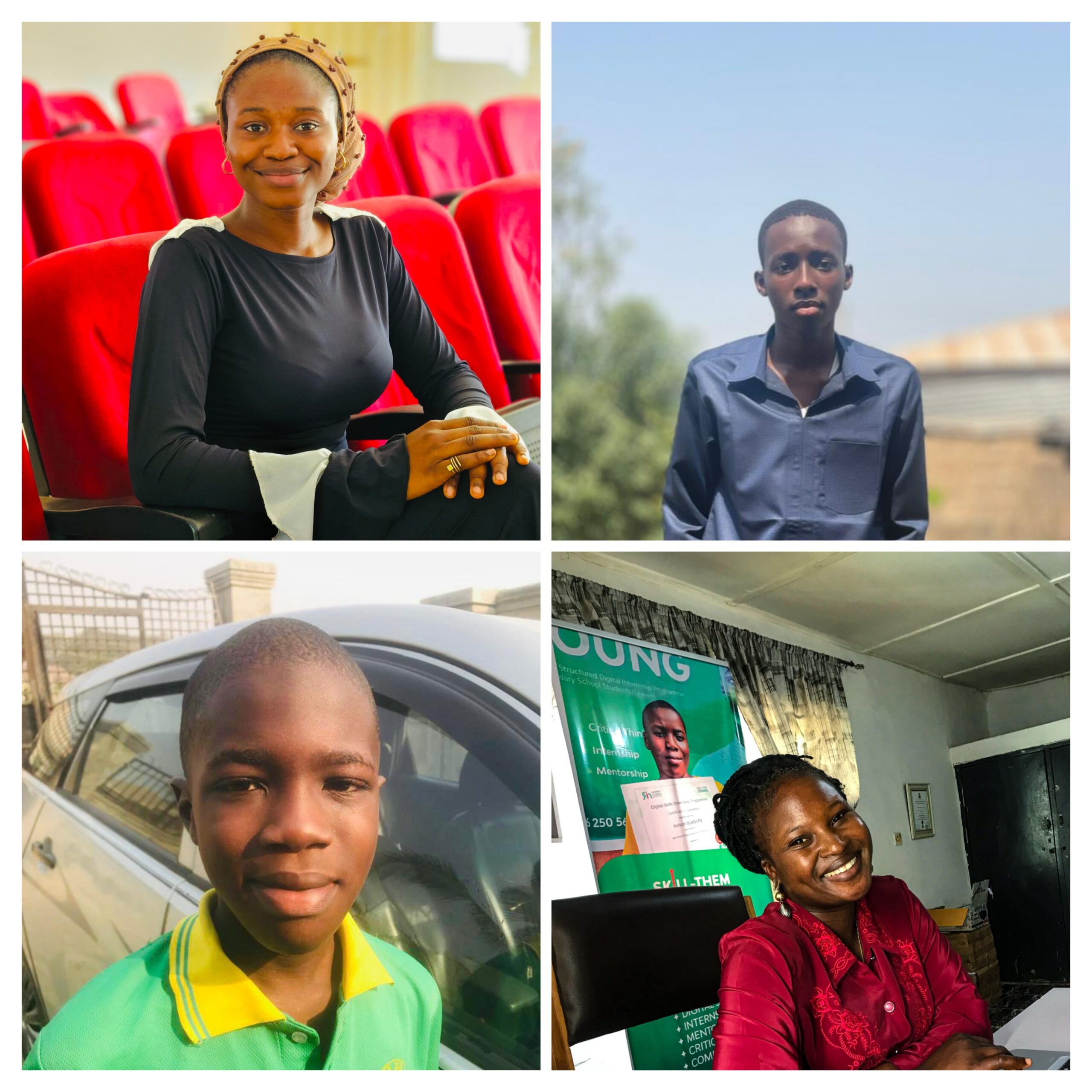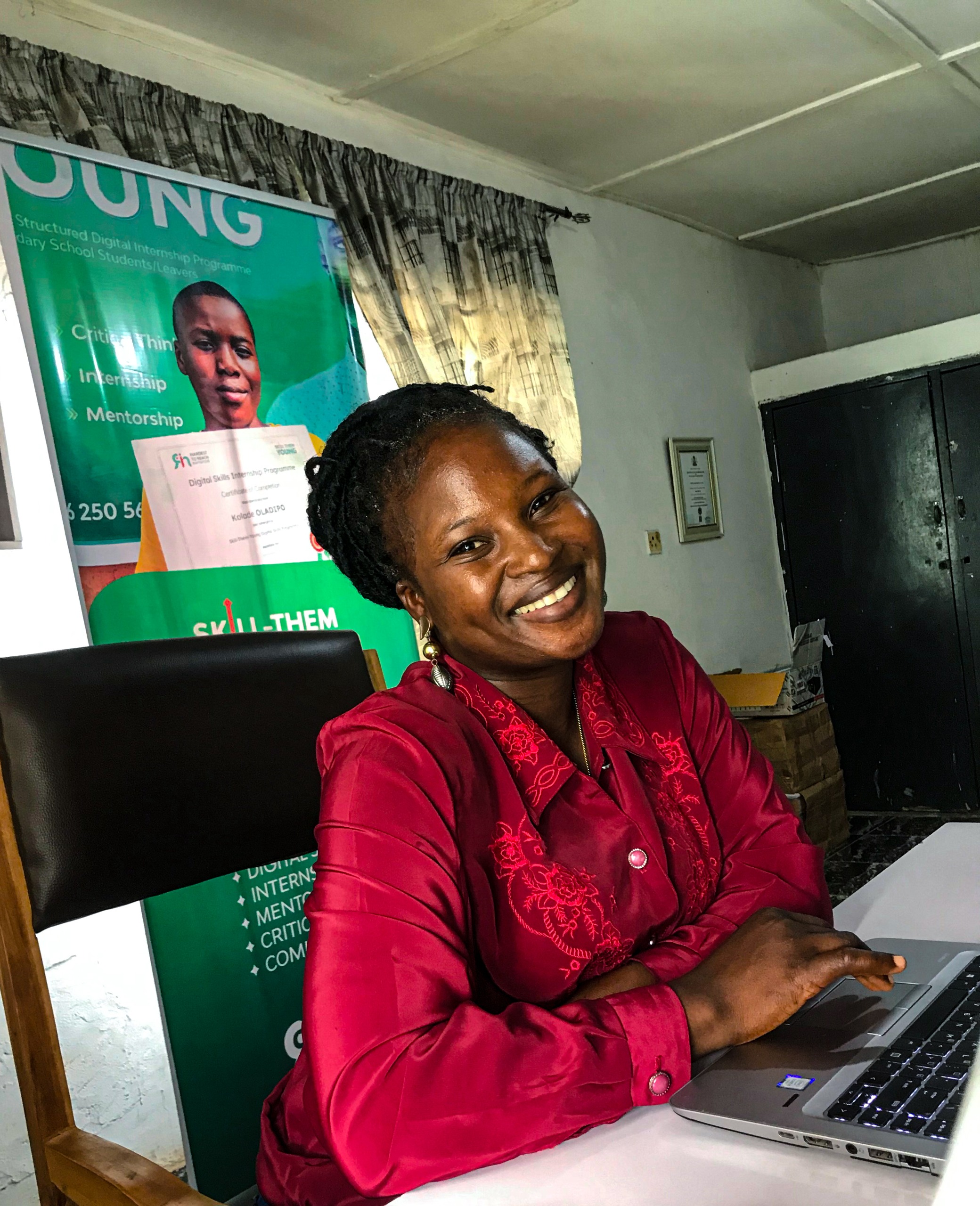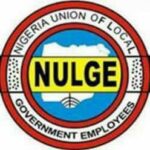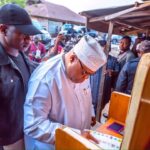By
Maryam Jimoh
As technology continues to reshape the world, one thing is clear, digital literacy is no longer a luxury, but a necessity. It encompasses more than just basic computer use. It’s about possessing the critical thinking and problem-solving abilities to effectively find, evaluate, and utilize information from the vast digital landscape.
According to the Nigerian Communications Commission, with over 122 million internet users in Nigeria, representing 55.4% nationwide connectivity, the country has made significant strides in digital adoption. Notably, 70% of these users are young people between 18 and 35 years old. However, this also highlights a concerning digital divide, where a substantial proportion of Nigerians, mostly young people, remain disconnected from the internet and its benefits.
The Hardest to Reach Initiative is tackling this issue head-on. Their mission is simple yet powerful: to ensure everyone has access to education, regardless of their background or challenges. This initiative focuses on providing rural communities with the essential digital skills and AI-powered tools necessary to thrive in the 21st century.
Fatiha Abdul Ganiyu, a 19-year-old student of Islamic College, Osogbo, is a testament to the initiative’s impact. Before joining the “Skill Them Young 1.0” programme, Fatiha struggled with basic digital skills and lacked self-confidence. However, after completing the three-week program, she transformed into a social media manager intern, skilled in operating laptops, proficient in Google collaboration tools, and confident in public speaking.
“I joined the programme because I want to equip myself with the technical skills needed for future careers. I want to learn about online safety, privacy, and ethics,” Fatiha said.
Lukman Adeoti’s passion for empowering rural communities stems from his research, which revealed that 52.55% of the Nigerian population still lives in rural areas. This translates to about 105 million people. Moved by this discovery, Adeoti established the Hardest-to-Reach Initiative to partner with established institutions and improve the quality of education for rural dwellers.
“I was seriously terrified knowing many innocent children are out there going their normal day without quality education due to teacher shortages, lack of finance, learning resources, lack of facilities, and other limiting factors,” Lukman said.
However, the initiative’s focus on digital literacy is not limited to secondary school students. Tertiary students, like Qazeem Anuoluwapo, a 22-year-old undergraduate studying Mathematics at Obafemi Awolowo University (OAU), have also benefited from the programme. Anuoluwapo credits the 3MTT Programme, an extension of the initiative, for equipping her with foundational skills and confidence to pursue her aspirations in the tech space.
“The 3MTT Programme has had a profound impact on my life. It helped me upskill in my data journey, and as a result, I am now a certified data scientist,” Anuoluwapo added.
Furthermore, the Hardest to Reach Initiative has partnered with the federal ministry of Communications, Innovation, and Digital Economy to introduce the 3MTT program, which aims to equip Nigerian youth with in-demand tech skills. The program has also received support from established institutions, ensuring its sustainability and impact.

One of the initiative’s success stories is Awaw Akintunde, a researcher with an MSc in Environmental Statistics from the University of Ibadan. Awaw joined the initiative after her husband registered her for the 3 Million Technical Talent (3MTT) Programme. The program equipped her with skills in data analysis and visualization, which transformed her career trajectory.
“I’ve always been driven by the desire to solve real-world problems using data, the programme equipped me with skills in data analysis and visualization, which transformed my career trajectory. My team and I, FloodForge, even won the Hackathon for our innovative flood management solution.”
As part of the winning team, Awaw received an array of benefits, including free monthly data for six months, scholarships for Coursera and Udemy courses valued at ₦415,000, and access to various resources to aid her professional development.
The Hardest to Reach Initiative serves as a tool for social change in Osogbo, utilizing social media platforms to carry out campaigns and disseminate information. By empowering women and girls through digital literacy and financial empowerment, the initiative is breaking down barriers and unlocking potential.
According to Rukayat Adekola, a volunteer and educator for the initiative, the main goal of HRi is to reach underserved communities, marginalized communities, and empower young lives and society in Osun State.
“The initiative believes that Nigeria has so many youth that are not getting things right, and to equip the younger generation that are going into adulthood. The initiative is now taking cognizance of digital literacy because the world is actually moving digital,” Rukayat said.
The initiative’s impact extends beyond digital literacy. Abdulsamad Balogun, a 16-year-old student of Al-Hamanah International School, participated in the “Skill Them Young” program, which taught him strategic planning and community engagement.
“The programme taught me how to engage marginalized groups and design sustainable solutions. It inspired me to think about my future in community development and digital technology,” Abdulsamad said.
Timileyin Adefisoye, another beneficiary, praised the initiative for its focus on digital literacy and teaching participants how to use productive computer tools.
“I was drawn to the program because I wanted to enhance my computer skills and gain a better understanding of the technology industry. My interest in tech grew as I progressed through the program,” Timileyin said.
Despite its success, the initiative faces challenges. One of the major challenges faced by the initiative is the attitude of some participants, as they often seek quick financial gains rather than long-term skill development. Additionally, there is a shortage of necessary devices, which is exacerbated by infrastructure deficiencies, and relying on support from friends and family for resources proves unsustainable , limited tutors, and a lack of resources such as laptops and consistent internet access. Beneficiaries also struggle to balance the program with personal responsibilities.
Nevertheless, the Hardest-to-Reach Initiative continues to make a significant impact. Beyond teaching basic computer skills, the program trains participants in using tools like Google Workspace, conducting credible online research, and analyzing information for accuracy.
“HRi empowers women and girls financially, ensuring they are not enslaved to anyone for financial support,” Lukman said. The initiative also uses social media to spread awareness and reach more communities.
The Hardest-to-Reach Initiative serves as a tool for social change in Osogbo, equipping underserved youth with the skills they need to thrive in a digital world.
Nigeria’s digitization journey offers immense opportunities, but to fully leverage them, the country must focus on enhancing digital literacy and developing high-value skills across its workforce. As more Nigerians get connected to the internet and digital devices, it’s essential to ensure that citizens, particularly the younger generation, possess the necessary digital skills to harness the full potential of digital technologies.
Maryam Jimoh is a 400 level student of Mass Communication, College of Management and Social Sciences, Fountain University, Osogbo.




